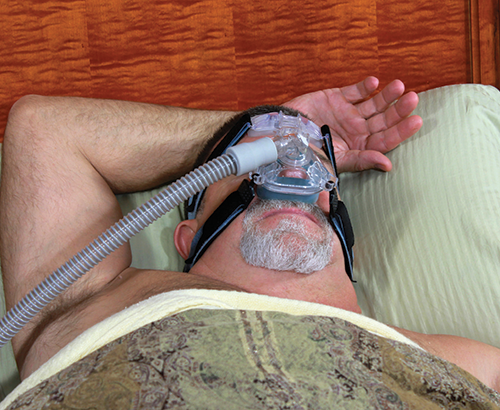This open-label, randomized, multicenter clinical trial of parallel groups used blinded endpoint design, and was conducted in 24 teaching hospitals in Spain involving 194 patients with resistant hypertension and an apnea-hypopnea index (AHI) of 15 or higher. The interventions were CPAP or no therapy while maintaining usual blood pressure control medication. The primary end point was the change in 24-hour mean blood pressure after 12 weeks. The results showed that 194 patients were randomly assigned to receive CPAP or no CPAP. When the changes in blood pressure over the study period were compared between groups, the CPAP group achieved a greater decrease in 24-hour mean blood pressure (3.1 mm Hg) and 24-hour DBP (3.2 mm Hg), but not in 24-hour SBP compared with the control group. Moreover, the percentage of patients displaying a nocturnal blood pressure dipper pattern at the 12-week follow-up was greater in the CPAP group than in the control group (35.9% vs 21.6%; adjusted odds ratio [OR], 2.4). There was a significant positive correlation between hours of CPAP use and the decrease in 24-hour mean blood pressure (r = 0.29, P = .006), SBP (r = 0.25; P = .02), and DBP (r = 0.30, P = .005). JAMA, December 2013. PMID: 24327037









